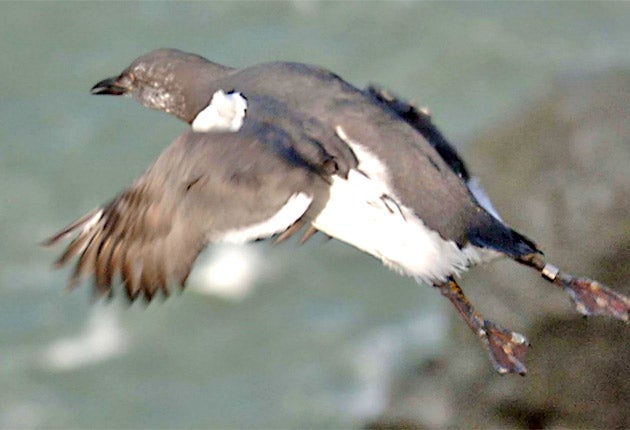The Week In Radio: They came, they soared, they conquered

Your support helps us to tell the story
From reproductive rights to climate change to Big Tech, The Independent is on the ground when the story is developing. Whether it's investigating the financials of Elon Musk's pro-Trump PAC or producing our latest documentary, 'The A Word', which shines a light on the American women fighting for reproductive rights, we know how important it is to parse out the facts from the messaging.
At such a critical moment in US history, we need reporters on the ground. Your donation allows us to keep sending journalists to speak to both sides of the story.
The Independent is trusted by Americans across the entire political spectrum. And unlike many other quality news outlets, we choose not to lock Americans out of our reporting and analysis with paywalls. We believe quality journalism should be available to everyone, paid for by those who can afford it.
Your support makes all the difference.To be frank, radio is not the obvious medium for wildlife study. It's one thing being lulled into a trance watching insects eat each other on Springwatch, but on radio you're much more reliant on the presenter to convey the creature's peculiar charm. Nature study warrants pictures first and foremost and I can't be the only person whose heart sinks slightly when the blowy soundtrack of Open Country heralds some shouty exchange on a windswept moor or an intense debate of badger hunting. So a series on bird-watching, timed for staycation season, did not bode well. But how wrong can you be? Admittedly, the fact that my staycation was in Fowey, home of Daphne du Maurier of The Birds fame, where gulls the size of Jack Russells dogfight over the harbour, meant I was in the most appropriate place in England to hear A Guide to Coastal Birds. But this delightful series would have worked anywhere.
Covering beach, shore, island, estuary and cliff birds, Brett Westwood and Stephen Moss, with the help of the sound recordist Chris Watson, matched a twitcherish enthusiasm with lovely snippets of detail. Take Moss on the silvery-grey common tern for instance, whose "elegant shape and floaty flight" makes it resemble "a gull that's died and gone to heaven" and whose courtship involves the male bringing his love a fish supper. Or the ring plover, "a dumpy short-legged wader", which is a small hero of the bird world through its amazing method of luring predators from its low-lying nest. According to Westwood, "the Broken Wing Distraction Display" involves the plover limping away holding its wing out and giving a plaintive call, so as to save its chicks and make itself vulnerable to attack instead.
There's a debate, I know, about anthropomorphising in nature programmes, but sometimes you just can't help it. This week, the programme came from Devon's sea cliffs, a favourite destination of fulmars, who mate for life and come back to the same spot for 50 years, like many of the holidaymakers around them. They also have a number of unpleasant habits, including regurgitating their food and spitting it out from a distance of five feet. There's the guillemots, whose constant calling is due to "the cocktail-party effect" whereby each individual guillemot can recognise its mate's raucous cry above the throng, and the razorbills, whose boy racers fly deliberately slowly (which is harder) in order to impress a mate.
Series like this cost a trillionth of a David Attenborough TV spectacular, yet still manage to impart vivid and memorable detail, as well as making you look with a more expert eye next time your ice-cream is dive-bombed on the beach.
Further memories of the holiday season came with Rain, on Twenty Minutes. Some might hesitate to describe themselves as a pluviophile, but this was Radio 3, so there was no danger of confusion and with suitably Eeyorish delivery, the poet Peter Didsbury looked to Arnold and Hopkins to back his idea that many of us are secretly invigorated by rain. Weather programmes can never fail, of course, and along the way he also provided some great etymology, such as "petrichor" the word for the smell of rain on dry ground, which comes from the greek petros for stone and ichor, the fluid that flows in the veins of the gods.
From gods to former gods, the Humph Celebration Concert on Radio 4 provided the opportunity for old muckers to commemorate the great Humphrey Lyttelton, largely by acting out brilliant moments from I'm Sorry I Haven't a Clue. Two of the best were the scene from The Importance of Being Ernest, with Darth Vader as Lady Bracknell and Obi-Wan Kenobi as Jack Worthing, and the orgasm scene from When Harry Met Sally, with Sally played as a Clanger. Even stuck in the Bank Holiday traffic jam from hell, I would have defied anyone not to laugh.
Join our commenting forum
Join thought-provoking conversations, follow other Independent readers and see their replies
Comments